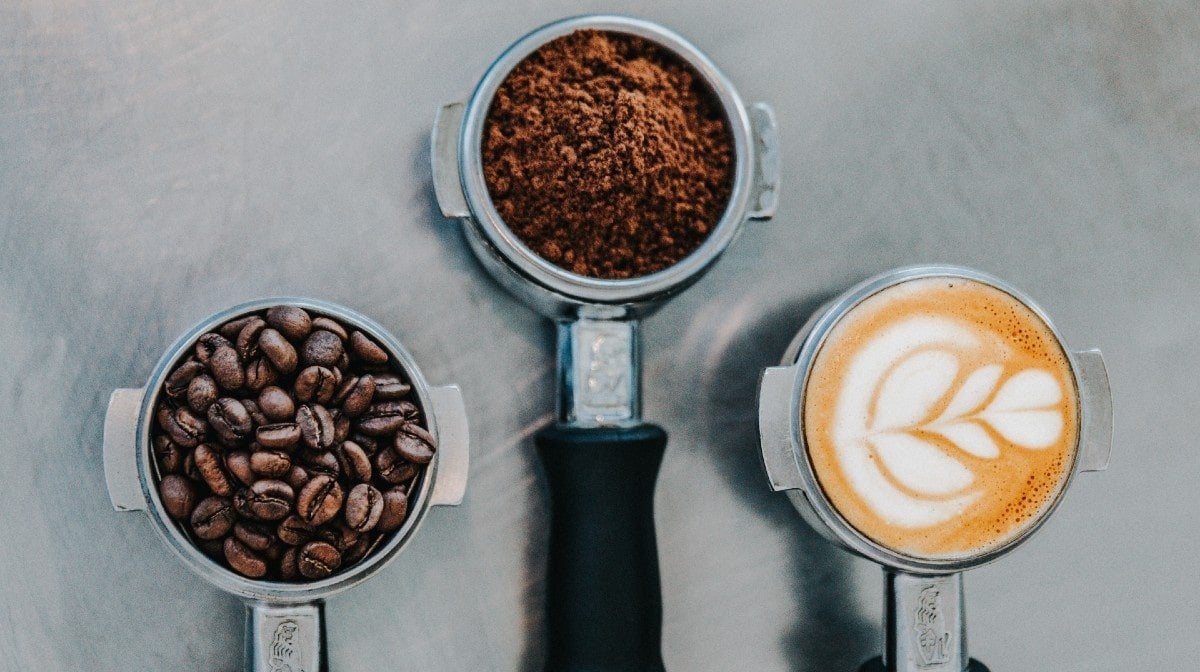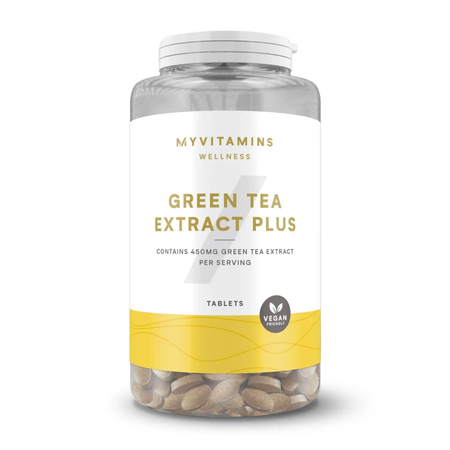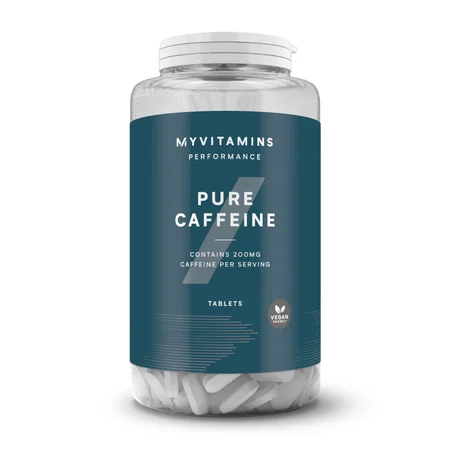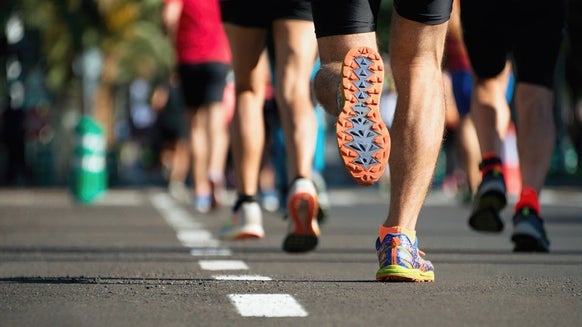What Are The Benefits Of Caffeine? Give It Up Or Worth The Performance Benefits?

Although for a lot of us the main reason we drink coffee is for an energy boost, there are a number of other benefits associated with caffeine consumption. This article will explore both the benefits and potential negative effects of caffeine.
- What is caffeine?
- How does caffeine work?
- Foods & drinks containing caffeine
- Benefits of caffeine
- Negatives of caffeine
- How much caffeine is too much?

What is Caffeine?
Caffeine is a naturally occurring stimulant, found in tea and coffee plants (and some others). It stimulates the central nervous system, including the brain, and is used for its energising effects that can translate into various other benefits.1 Interestingly, the EFSA found that the majority of caffeine consumed in the UK is from tea, while in the US the majority is from coffee.2
The average UK adult consumes between 122-143mg per day.3
How does Caffeine Work?
When we drink caffeine, it’s absorbed from our digestive tract into our bloodstream. It’s taken to the liver to be metabolised into smaller component molecules, which impact our body in several different ways. Caffeine blocks the effects of adenosine (which can slow down our nerve cells and makes us feel tired) and instead speeds up brain activity for more energy.1
This increased brain activity is also thought to trigger the adrenal glands to increase adrenaline, while simultaneously boosting dopamine levels, the ‘feel good’ hormone. The combination of these effects on the brain can lead to feeling less tired and more alert and energetic.
Research shows that it takes between 15 and 120 minutes for caffeine levels to peak after ingestion, which supports the idea of a “caffeine nap”. Some people will drink their caffeine and then nap for a short period of time (like 20-45 minutes).4 The caffeine will kick in when they wake from the short nap and their body benefits from the brief physical recovery of a nap.
Foods and Drinks containing Caffeine
While most caffeine comes from beverages, it’s also naturally occurring in chocolate. According to the EFSA, here's the typical caffeine content of some key food & drink:5
Coffee, 200ml: 90mg Energy drinks, 250ml: 80mg Espresso, 60ml: 80mg Brewed tea, 220ml: 50mg Soft drinks, 355ml: 40mg Bar of chocolate, 50g: 10mg (milk), 25mg (100% cocoa)
What are the benefits of caffeine?
May improve concentration, learning, and memory
Research has shown that caffeine increases incidental learning, which means situations where you are not intentionally trying to study or learn something, but you end up being more aware and able to recall more details about things you observed.4
May boost mood and energy levels
Another benefit of caffeine is the emotional boost. Thanks to metabolic effects of caffeine described above, caffeine has impacts on the release of several hormones in the brain that make you feel less tired, whilst also helping you to feel happier.1
May improve exercise performance
When your energy levels are higher, you’re more likely to push harder during your workouts. The combination of increased energy and focus lets your brain tell your body that you can perform at a higher level or for longer periods of time, which can be a benefit to your gym sessions.6
May speed metabolism and support fat loss
While much is researched on caffeine and the brain, the benefits of caffeine on other hormones might increase your metabolism.6 When you have higher energy levels and your nervous system is stimulated, you may feel less hungry and find it easier to stay on track with a healthy eating plan that supports fat loss.
What are the negative side effects of caffeine?
May increase risk for dehydration
May increase anxious feelings
While an energy-boost sounds appealing to some, too much caffeine may lead to an overstimulated nervous system that leaves you feeling shaky and on edge instead of focused and energised.1
May cause headaches
While caffeine helps to constrict blood vessels and relieves headaches for some, its temporary effects may actually cause headaches for others.1 Withdrawal headaches are one of the most common symptoms of caffeine withdrawal once your body builds up a tolerance, even if you typically only have one cup per day.1
May cause sleeplessness
Too much caffeine or caffeine late in the day can counteract your body’s inclination to relax for bedtime and keep your brain (and body) awake longer than you’d like to be.1 If this is a problem for you, limit your caffeine to one serving per day and have it in the morning.
How much Caffeine is ‘too much’?
While everyone might react differently to caffeine, the EFSA and other regulatory groups state that up to 400mg of caffeine per day does not show negative health impacts.3
The impact of caffeine on the body can be highly individualised, and can be impacted by health conditions or certain medications. You can likely enjoy a cup or two of coffee or tea each day and still stay under the 400mg recommendation, but talk to your doctor if you have concerns, especially if you’ve built up a high tolerance to caffeine over time.
Take Home Message
READ THESE NEXT:

Claire is a Registered Dietitian through the Academy of Nutrition and Dietetics and a board-certified Health and Wellness Coach through the International Consortium for Health and Wellness Coaching. She has a Bachelor of Science in Biology and a Master’s degree in Clinical Dietetics and Nutrition from the University of Pittsburgh.
Talking and writing about food and fitness is at the heart of Claire’s ethos as she loves to use her experience to help others meet their health and wellness goals.
Claire is also a certified indoor cycling instructor and loves the mental and physical boost she gets from regular runs and yoga classes. When she’s not keeping fit herself, she’s cheering on her hometown’s sports teams in Pittsburgh, or cooking for her family in the kitchen.
Find out more about Claire’s experience here.
- Ruxton, C. H. (2008). The impact of caffeine on mood, cognitive function, performance and hydration: a review of benefits and risks. Nutrition Bulletin, 33(1), 15-25.
- Verster, J. C., & Koenig, J. (2018). Caffeine intake and its sources: A review of national representative studies. Critical Reviews in Food Science and Nutrition, 58(8), 1250-1259.
- Fitt, E., Pell, D., & Cole, D. (2013). Assessing caffeine intake in the United Kingdom diet. Food chemistry, 140(3), 421-426.
- Nehlig, A. (2010). Is caffeine a cognitive enhancer?. Journal of Alzheimer’s Disease, 20(s1), S85-S94.
- EFSA Panel on Dietetic Products, Nutrition and Allergies (NDA). (2015). Scientific Opinion on the safety of caffeine. EFSA Journal, 13(5), 4102.
- Van Soeren, M. H., & Graham, T. E. (1998). Effect of caffeine on metabolism, exercise endurance, and catecholamine responses after withdrawal. Journal of Applied Physiology, 85(4), 1493-1501.









